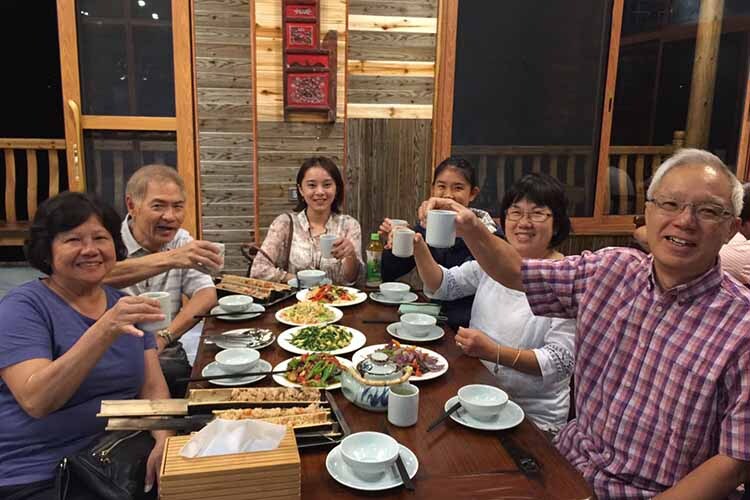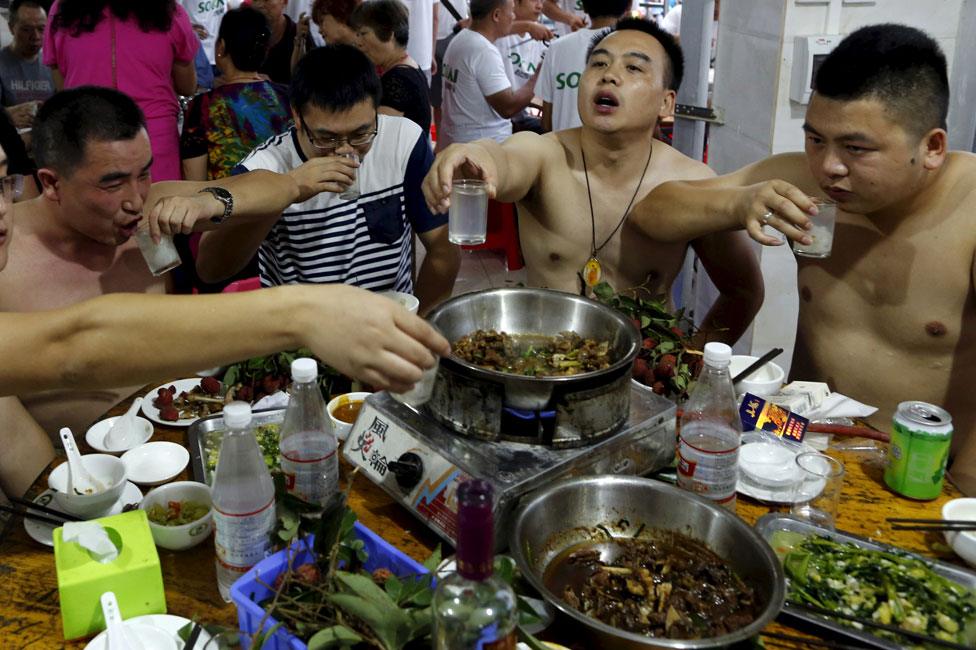20 Best Ways To Delicious Chinese Dishes to Try
Wiki Article
Top 10 Tips For Dealing With copyright Products When Shopping In China
1. Be aware of the high-risk products: Most counterfeited goods are items that are brand-name, such as designer bags, watches, and electronic items. Be sure to shop for these products with extreme care.Pro: Helps focus your scrutiny on likely copyright products.Cons: Can create suspicions regarding the authenticity of the product without sufficient knowledge.
2. Authentic product details can be found by researchingBe aware of the brand's logo fabric, stitching, and packaging before shopping.Increases your ability to recognize subtle differences between genuine products and fake ones.Cons: It can be time-consuming to learn new products, particularly when they're not used to them.
3. Trusted StoresTip: If you are trying to purchase high-end products, it is best to stick with official brands or trusted malls like Beijing China World Mall or Shanghai Plaza 66.Pro: Guarantees authenticity of the product and comes with receipts, warranties, etc.Contra: Certain items cost more in the street markets or in smaller stores.
4. Make sure you have checked labels and tagsTIP: Watch out for misspellings, fonts that don't match, or low-quality materials on tags and packaging.Pro: Quick method to detect counterfeits.Contra: copyright of high-quality often mimic authentic details extremely closely, which makes detection more difficult.
5. Be wary of "too good to be true Price"Tips: Prices that are too low for luxury items can be a sign of a fraud. True luxury items rarely sell much less than the retail price.Pro: Helps you avoid obvious frauds.Con: Some sellers use moderate prices to make counterfeits look more convincing.
6. Get Certificates Of ValidityTip: For items such as jade, antiques or branded goods, request documentation that proves authenticity.Pro: Adds an extra level of assurance in your purchase.Con: Certificates can be falsified, so this isn't a 100% secure method.
7. Test before you buyRequest to test expensive electronics or other items before making the final choice.Pro: Helps verify the functionality and quality.Cons: The seller might not permit testing or the tests might only be superficial.
8. Find antiques that are expertly curatedA tip: Genuine antiques require extensive knowledge or a professional's confirmation. It is best to avoid purchasing antiques unless they are authentic.Pro: There is less chance of being scammed by a fake.Con: Miss out on attractive, but inauthentic, décor items.
9. Utilize a Local Guide That You TrustA guide from your local area or a friend who has experience in the market is in a position to assist you in identifying genuine vendors and spot counterfeits.Pro: Reduces risk and saves time when shopping in markets that aren't familiar to you.Con: Guides may be expecting a commission or tip, adding to your costs.
10. Don't be afraid to trust your instinctsDo not buy something if you don't feel natural regardless of the attitude of the seller or product's quality.Pro: Stops you from regrettable purchases.Cons: Being overly cautious can cause you to miss out on bargains.
Benefits of avoiding fake goodsDurability: Authentic goods last longer and provide better value.Peace of mind There is no need to worry about being deceived or scammed.Legal Safety: Some travel destinations penalize travelers who return copyright goods.By supporting authentic brands, you can help keep a business in good standing.The Cons of Avoiding copyright ProductsThe authentic items are usually more expensive.Limited Availability: Some genuine items may not be sold in markets on the streets or in small stores.There are a few fakes that provide a huge deal of value.With these guidelines, you can shop in China with confidence, and make informed decisions when purchasing authentic or imitation products. Follow the recommended explore the best local eats in China for website recommendations including discover Chinese street food, Chinese cuisine you need to try, taste the best dishes across China, culinary experiences across China, China culinary hotspots, a guide to eating like a local in China, a culinary journey through China, Chinese food culture guide, the ultimate guide to Chinese cuisine, experience traditional Chinese food and more.

Top 10 Tips On Tipping Practices In China
1. Tip Tips: In China it is not a custom.Pros: It is cost-effective and is in accordance with the norms of culture.Con: Might feel odd for those who are used to tipping their own countries.
2. Check for service chargesTips: Most luxurious restaurants and hotels have a an additional service charge (10-15 percent) in the total bill. This means that tipping is not necessary.Pro: There is no need to make calculations or leave a note.Con: Service fees may not always be clearly stated.
3. Use Tip Only if it is appropriateIn areas that are awash with tourists hotels, international chains and tour guides can expect tips, particularly from drivers, hotel staff or tour guides.Pro: Showing appreciation to exceptional customer service can be accomplished with a simple gesture.Cons: The inconsistencies of certain businesses could cause confusion about when tipping is appropriate.
4. Don't offer tips to other people.It is best to be subtly generous in your gesture to avoid any awkwardness.Pro: Avoids drawing unwanted public attention or causing embarrassment.Cons: Some people may not tip you, which can lead to awkward situations.
5. Make use of cash for tippingTip: If you feel the tipping amount should be included in the cost, make it a cash payment instead of adding it. In China the payment systems do not allow for tipping.Cash is accepted everywhere, and it's simple.Cons: Small amounts are required, which can be difficult to manage.
6. Tips for Business with a focus on tourismTips: In places that are frequented by Western tourists, tipping might be expected or appreciated for example, in restaurants that are international or on guided tours.Pro: Aligns to the expectations of service providers who are comfortable with Western practices.Con The practice encourages gradual tipping into cultures that traditionally do not employ it.
7. Avoid Tipping Taxi DriversTip: Tipping your taxi driver is not usual. It is possible to, however round it up to the nearest dollar if required.Pro: Shows goodwill and respect for the local customs.Con: The act of rounded up may be misunderstood in areas which are not touristy.
8. You should think about tipping your Tour GuidesTips: For private or group tours, tipping your driver and guide is common particularly in cities such as Beijing or Shanghai. In small amounts (e.g. 50-100 yuan) are generally well-received.Pro: Good service is rewarded.Cons: It could set the expectation for future visitors to tip more.
9. Avoid Over-TippingTipping: A modest amount (5-10 percent or less) is sufficient if you choose to give a tip. The idea of giving a large amount of money is seen as unnecessary or excessive.Pro: Stops locals from being offended or overspending unnecessarily.Con: If used to tipping generously, holding back may feel uncomfortable.
10. Research Ahead of TimeTIP: Be aware of specific tipping practices within the area or at the establishment prior to arriving. Some provinces or establishments catering to foreigners may have different expectations.Pro The benefit is that you will be able to easily adapt to local customs and avoid misunderstandings.Con: It can take time to study each region or establishment in isolation.
Pros of Tipping Practices in ChinaCost Savings: Not having to tip means less overall costs.Cultural Adaptation: Harmonization with the traditional ways of life and encouraging respect and integration.Simple: It eliminates the need for calculations or carrying around cash.Focus on Service Recommends service providers to concentrate on quality, not tips.Cons of Tipping ChinaTourists might be unfamiliar with the tipping culture.Uncomfortable Situations Tips that are given in an unintentional manner can cause confusion or discomfort.Changes in Expectations Tipping has been introduced by tourism in some areas, leading to inconsistencies in practices.The absence of a tip may be the only way for some travellers can show their gratitude.These suggestions will help you to navigate China's tipping practices with ease, and ensure a positive dining experience. Have a look at the most popular the best food destinations in China for site info including tasty delights from China, a tour of China regional cuisine, the flavors of Chinese cuisine, China famous food destinations, famous foods in China cities, a deep dive into China food culture, from street food to fine dining in China, discover hidden food gems in China, explore local Chinese cuisine, from street food to fine dining in China and more.
